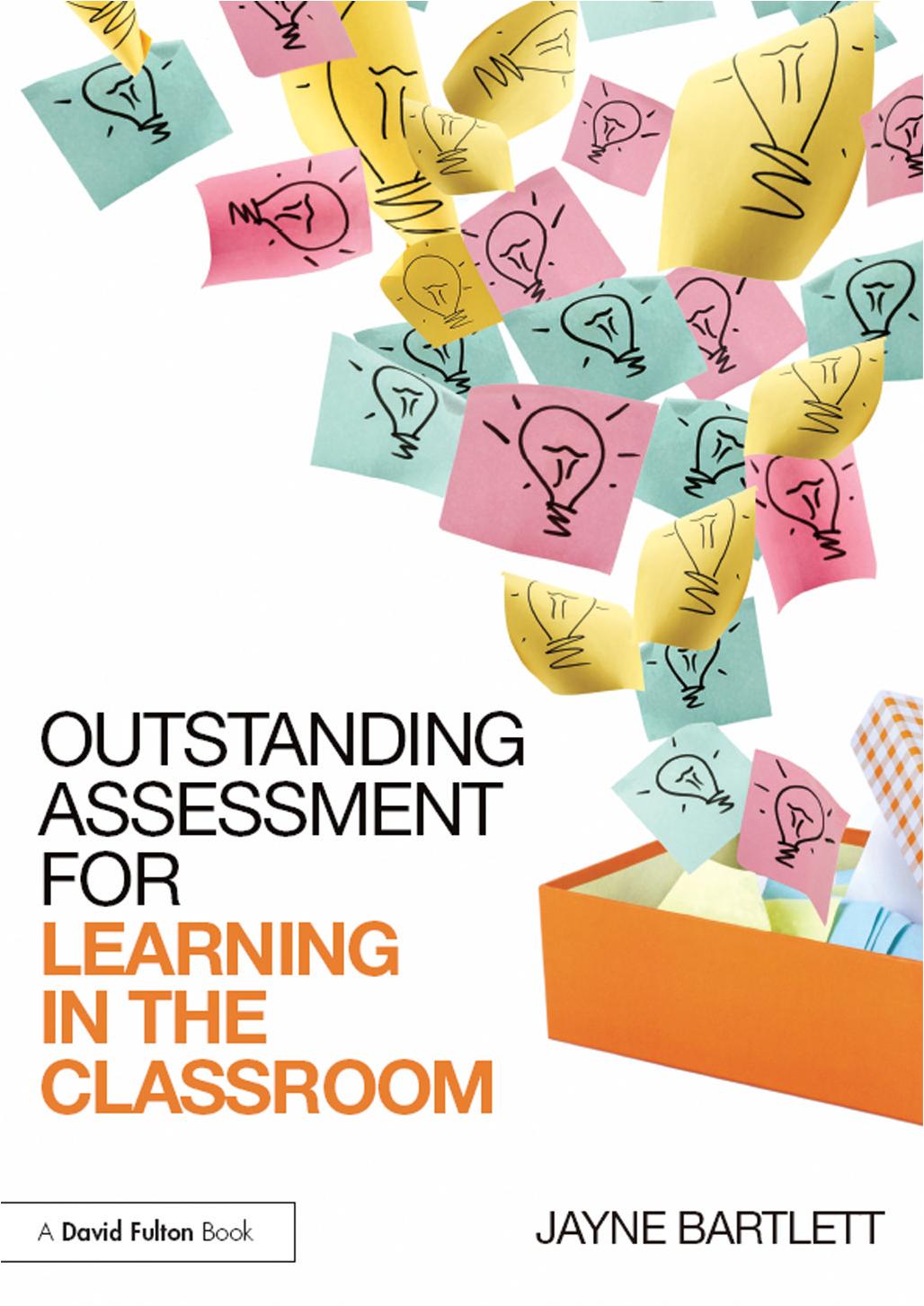Outstanding Assessment for Learning in the Classroom by Jayne Bartlett

Author:Jayne Bartlett
Language: eng
Format: epub, pdf
ISBN: 978-1-317-50937-0
Publisher: Routledge
Linking with other departments: creating a meaningful assessment opportunity
Developing cross-curricular links adds value to learning and allows pupils to make connections. It prevents them from thinking of subjects as discrete entities with little relevance and from considering topics to be divorced from each other. No doubt, in your career, at least once (and most likely more), you will have heard staff from one department complaining that pupils don’t have the skills that you know are taught in your department. I have certainly heard physics teachers make comments along the lines of ‘They just can’t rearrange formulae.’ Yet I know this is taught well in mathematics. What we are really saying is that pupils cannot transfer skills across subjects. So, using this example, next time you study rearranging formulae with a class ask the physics department for some formulae they actually use and then use these in class, using the words associated with the formula and making the physical connection in context to add real meaning to the example. The very best learning makes connections and allows pupils to relate different subject matter to other curriculum areas, and, of course, to life in general. Below, I offer a few examples of simple but effective cross-curricular links. This does not have to be something that is restricted to younger pupils (who generally have a more engaging curriculum), but to all pupils across all phases.
Maths, DT, MFL and others
Recipes provide a wonderful cross-curricular opportunity. MFL can introduce the recipe in a target language (one language, if all pupils study a single language). Pupils can be asked to translate the recipe or to answer a series of questions (you may use different recipes for different groups of students through discussion with DT, mathematics and MFL). In mathematics, you can study ratio; pupils can be asked to develop the recipe for different servings (e.g. rewriting a ‘serves 8’ recipe as a ‘serves 12’ recipe). The assessment focus here is on the technique and method that pupils use (can they effectively use the unitary method?). This may only be a short plenary task as part of a lesson developing the concept of ratio and need not take up substantial lesson time. For an extension, pupils can be asked to explain the mathematical process. When pupils make the product in DT, assessment is in both the how (i.e. during the process) and in the quality of the final product (could be a tasting similar to Masterchef [www.bbc.co.uk], where pupils present their product), with explicit assessment criteria to support pupils in assessing their own progress and perhaps redirecting. There are lots of different avenues to this very simple project. A continuance is designing packaging for the product and developing a marketing campaign (this can be in English and also in the MFL used), with links to ICT or business studies. None of these are particularly onerous on individual subjects and all demonstrate progress in learning across a range of subjects in a rather simple but very effective way. All types of learners are embraced, allowing everyone to access the curriculum.
Download
Outstanding Assessment for Learning in the Classroom by Jayne Bartlett.pdf
This site does not store any files on its server. We only index and link to content provided by other sites. Please contact the content providers to delete copyright contents if any and email us, we'll remove relevant links or contents immediately.
The Art of Coaching Workbook by Elena Aguilar(48033)
Trainspotting by Irvine Welsh(20042)
Twilight of the Idols With the Antichrist and Ecce Homo by Friedrich Nietzsche(17702)
Fangirl by Rainbow Rowell(7825)
Periodization Training for Sports by Tudor Bompa(7323)
Change Your Questions, Change Your Life by Marilee Adams(6636)
This Is How You Lose Her by Junot Diaz(5753)
Grit by Angela Duckworth(4728)
Red Sparrow by Jason Matthews(4654)
Asking the Right Questions: A Guide to Critical Thinking by M. Neil Browne & Stuart M. Keeley(4564)
Paper Towns by Green John(4163)
Room 212 by Kate Stewart(4099)
Ken Follett - World without end by Ken Follett(3968)
The Sports Rules Book by Human Kinetics(3581)
Housekeeping by Marilynne Robinson(3395)
The Motorcycle Diaries by Ernesto Che Guevara(3325)
Introduction to Kinesiology by Shirl J. Hoffman(3297)
Exercise Technique Manual for Resistance Training by National Strength & Conditioning Association(3285)
Double Down (Diary of a Wimpy Kid Book 11) by Jeff Kinney(3267)
